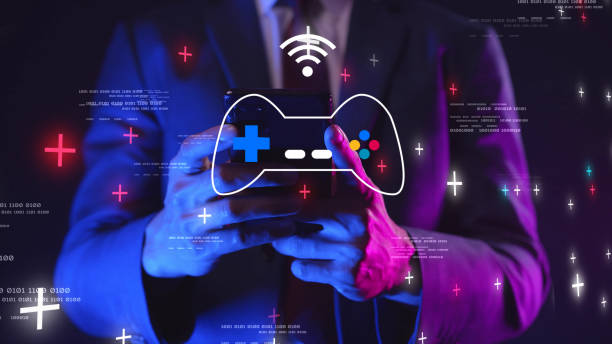The gaming industry has experienced rapid technological advancements over the past decade, and blockchain technology is now poised to reshape the way we play, earn, and interact online. From decentralized ownership to secure transactions, blockchain introduces innovative solutions that can revolutionize the gaming landscape.
This blog explores the impact of blockchain technology on the future of online gaming and why gamers and developers alike should pay attention.
Understanding Blockchain in Gaming
Blockchain is a decentralized, distributed ledger that records transactions securely and transparently. In gaming, blockchain allows:
- True Ownership: Players can own in-game assets, items, or characters as NFTs (non-fungible tokens).
- Decentralized Economies: Game currencies or assets can be traded securely outside the game ecosystem.
- Transparency: Immutable records reduce fraud and cheating.
By integrating blockchain, games can offer players more control, security, and opportunities for monetization.
Key Advantages of Blockchain in Online Gaming
1. True Digital Ownership
Players can buy, sell, or trade in-game items with verified ownership. Unlike traditional games where items are locked to an account, blockchain ensures that assets belong to the player, creating a player-driven economy.
2. Play-to-Earn Models
Blockchain enables games where players earn cryptocurrency or NFTs for achievements, completing tasks, or participating in events. This model rewards skill and engagement, creating real-world value.
3. Cross-Platform Asset Usage
With blockchain, assets like skins, characters, or items can be used across multiple games, increasing flexibility and immersion.
4. Security and Transparency
Blockchain’s decentralized nature ensures transactions are secure, and records cannot be tampered with. This reduces scams, fraud, and unauthorized duplication of assets.
5. Community Governance
Some blockchain games allow players to participate in governance through tokens, influencing updates, new features, or economic changes in the game world.
Popular Blockchain Gaming Applications
- Axie Infinity: One of the first games to popularize the play-to-earn model, allowing players to earn cryptocurrency by battling and breeding creatures.
- The Sandbox: A virtual world where players can create, own, and monetize experiences using blockchain-based assets.
- Decentraland: A blockchain-powered virtual reality platform where users can buy virtual land and create interactive experiences.
These examples show how blockchain integrates gaming with digital economies, providing players with real-world rewards.
Challenges Facing Blockchain Gaming
While blockchain gaming offers exciting opportunities, there are challenges to consider:
- High Entry Costs: Some play-to-earn games require significant upfront investment in NFTs or in-game assets.
- Environmental Concerns: Certain blockchain networks consume high energy, raising sustainability issues.
- Regulatory Uncertainty: Cryptocurrency regulations vary by country, affecting gameplay and earnings.
- Volatility: In-game cryptocurrencies can fluctuate, impacting the value of rewards.
Developers are actively working on solutions, such as using energy-efficient blockchains and improving accessibility for players.
The Future of Online Gaming with Blockchain
- Integration of Metaverse Experiences: Blockchain enables immersive virtual worlds where players own assets, interact socially, and earn rewards.
- Enhanced Player Empowerment: Gamers will have more control over in-game economies, content creation, and governance.
- New Monetization Models: Play-to-earn and NFT marketplaces will redefine the traditional gaming revenue model.
- Interoperability Across Games: Blockchain may enable assets and currencies to function across multiple games and platforms.
As adoption grows, blockchain could transform gaming from a purely entertainment-focused activity into a full-fledged digital economy.
Final Thoughts
Blockchain technology is setting the stage for a revolution in online gaming, offering true ownership, play-to-earn opportunities, and enhanced transparency. While challenges like high entry costs and regulatory uncertainty remain, the potential benefits are enormous for both players and developers.
The future of gaming will likely be more decentralized, player-driven, and immersive, with blockchain serving as the backbone of this evolution. Gamers who embrace these changes today may find themselves at the forefront of a new digital frontier.

